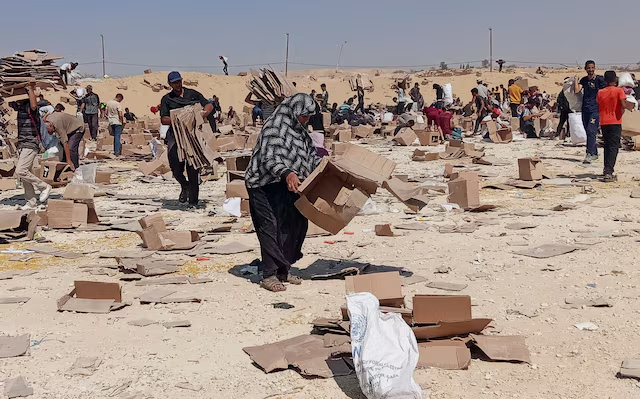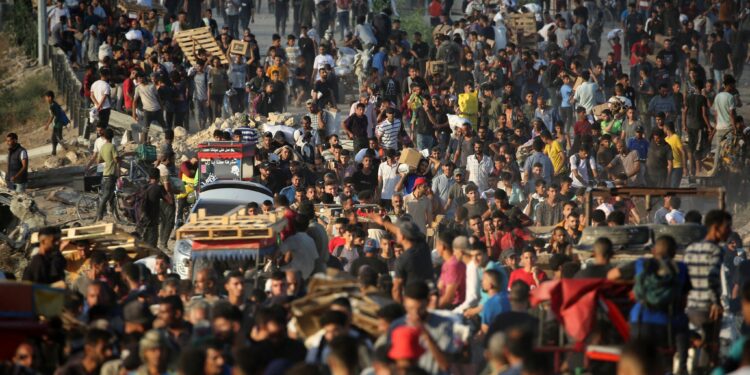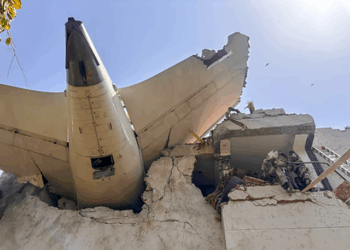The United Nations Human Rights Office reported Friday that at least 613 people have been killed in and around aid distribution zones in Gaza, including those operated by the controversial Gaza Humanitarian Foundation (GHF) and convoys run by the UN and other relief agencies.

The alarming figure, based on data collected through June 27, includes 509 deaths near GHF-run food distribution sites, according to Ravina Shamdasani, spokesperson for the UN Office of the High Commissioner for Human Rights (OHCHR).
“We have recorded 613 killings both at GHF aid points and near humanitarian convoys. Since June 27, more incidents have occurred, and we are working to verify them,” Shamdasani said during a briefing in Geneva.
GHF’s Role and Rising Controversy:
The Gaza Humanitarian Foundation, a U.S.- and Israeli-supported aid initiative, began distributing food in late May, claiming it had delivered more than 52 million meals to Palestinians in just five weeks. GHF relies on private U.S. security and logistics contractors to transport aid, largely circumventing the UN-led aid system, which Israel has criticized for alleged diversion of supplies by Hamas militants.
While GHF has denied any incidents occurring at its distribution points, the OHCHR maintains that its data reflects credible reports from hospitals, families, cemeteries, NGOs, Palestinian health agencies, and on-the-ground partners.
The UN, however, has expressed concerns about the GHF model, labeling it “inherently unsafe” and inconsistent with humanitarian neutrality and protection principles.
Chaos and Violence Around Aid Deliveries:
The UN Office for the Coordination of Humanitarian Affairs (OCHA) confirmed that aid operations in Gaza have faced violent looting and attacks on truck drivers, further complicating already fragile relief efforts.
“Israel, as the occupying power, is responsible for public order and safety in Gaza,” said OCHA spokesperson Eri Kaneko in a statement to Reuters.
“That responsibility includes allowing in significantly more aid through various crossings and safe routes to meet the scale of humanitarian needs.”
The Israeli military acknowledged earlier this week that civilians had been harmed during aid distributions. Military officials said new instructions have been issued to forces operating near the centers, citing “lessons learned” from past incidents.
Mounting Humanitarian Crisis:
Gaza is currently experiencing a critical shortage of food, clean water, and medicine, exacerbated by nearly two years of relentless Israeli military operations aimed at dismantling Hamas, which has governed the enclave for over a decade.
Since the outbreak of the conflict on October 7, 2023, when Hamas militants attacked Israel, killing around 1,200 people and abducting over 250, the Israeli response has left Gaza in ruins. According to Palestinian health authorities, over 57,000 people — mostly civilians — have been killed.
The 11-week Israeli blockade, lifted on May 19, had choked the flow of humanitarian aid. While relief deliveries have since resumed, the security risks, insufficient access routes, and internal chaos continue to hinder effective distribution.
Desert Feed will continue to monitor developments in Gaza, international humanitarian responses, and efforts to ensure safe and impartial aid delivery to civilians in need.






